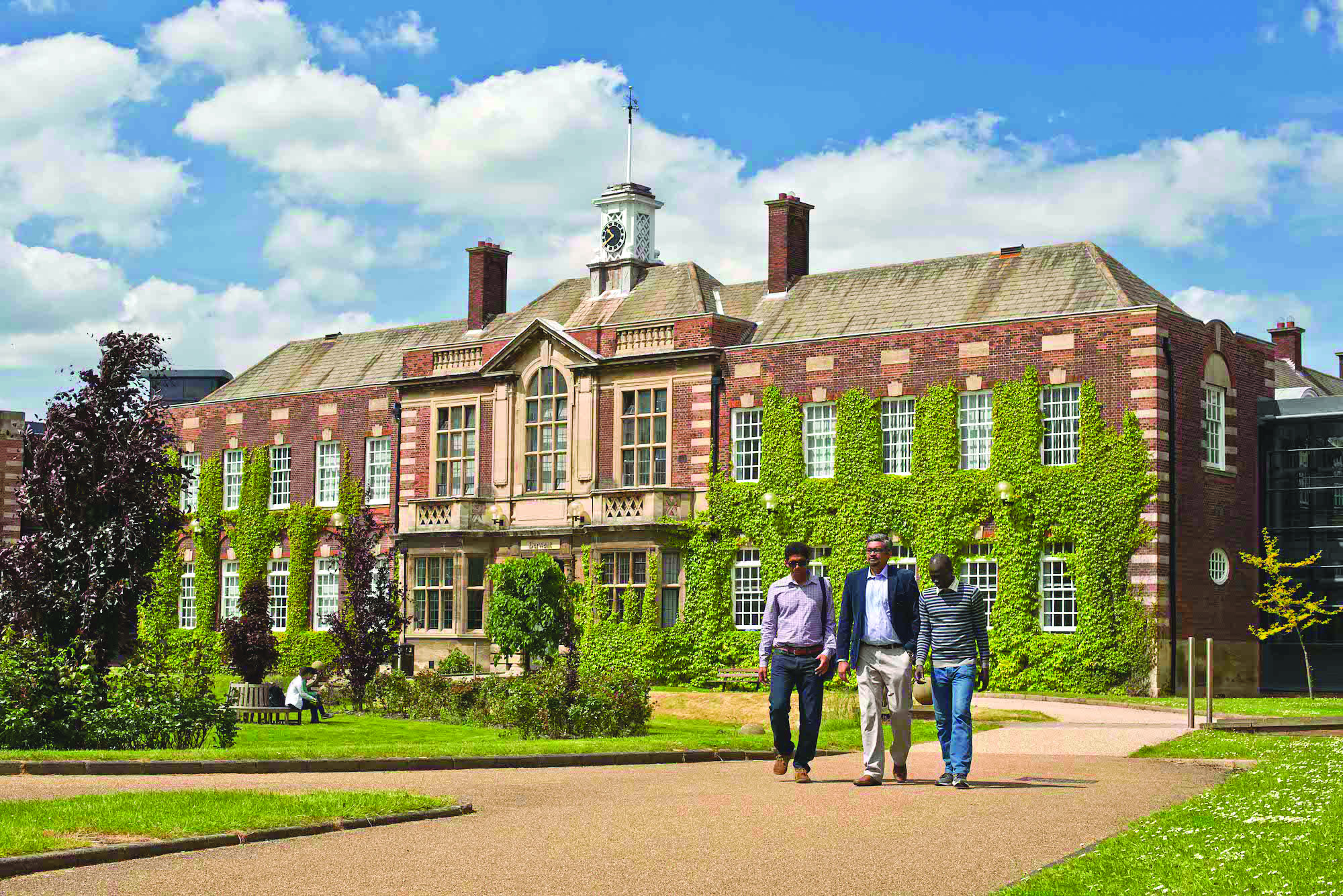A public research university, Hull is ranked among the world’s Top 200 universities in the latest Times Higher Education Impact Rankings. Moreover, Hull is ‘Gold’ rated under the Teaching Excellence Framework 2023

Hull University vista: academic rigour & impactful research
The 14th oldest British varsity, University of Hull (estb.1927) enjoys an excellent reputation for academic rigour and impactful research outcomes. A public research university, it’s ranked among the world’s Top 200 in the latest Times Higher Education (THE) Impact Rankings that assess higher education institutions against the UN Sustainable Development Goals (SDG) objectives. Moreover, Hull is ‘Gold’ rated under the Teaching Excellence Framework (TEF) 2023 of the UK government.
Sited on a scenic campus in Kingston-upon-Hull, the university’s 23 academic departments and schools offer a wide range of undergraduate and postgrad study programmes to over 15,000 students including 3,750 from 97 countries. They are mentored by 1,000 faculty.
Illustrious alumni include Samir Shah, chairman of BBC; online shopping pioneer and entrepreneur Michael Aldrich; Assem Allam, owner of the Hull City football club, and playwright James Graham. The famous English poet Philip Larkin was Head Librarian at Hull for 30 years and Dame Sarah Gilbert — who co-developed the Oxford AstraZeneca Covid vaccine — and Prof. Guido Imbens, a Nobel Prize winner for Economics, began their academic careers at the university.
Founded in 1927 as University College, Hull, its foundation stone was laid the following year by the Duke of York (later King George VI). The initial cohort comprised 39 students and 14 ‘one-person’ departments. The college received a Royal Charter granting it university status in 1954.
Hull. Situated some 200 miles to the north-east of London, Kingston-upon-Hull aka Hull is Britain’s premier east coast port. Water is essential to the identity and history of this port town, and its lasting association with the sea is reflected in the buildings and museums which commemorate the city’s traditions. Historically as a maritime city, Hull was well-known only to those engaged with sea trade. Today in the 21st century, it not only remains a major port, but is also a thriving commercial centre. London and Edinburgh are only three hours by train, while the great football cities of Manchester, Leeds and Liverpool are no more than an hour or two distant.
Refreshingly, Hull has managed to maintain the culture of a country town while offering all the facilities and amenities of UK’s largest cities. Its citizens boast of its pedestrian precincts, cafes, restaurants, pubs, theatres, concert halls, clubs, galleries, museums and cinemas.
Campus facilities. The university is spread across a picturesque campus in the port-city of Hull with students blessed with easy access to a scenic coastline and some of the most beautiful open spaces of Britain.
The benefits of a scenic environment apart, Hull students enjoy the advantages of a modern, IT-enabled state-of-the-art campus. According to a university spokesperson, £300 million (Rs.3,160 crore) has been invested recently to boost and upgrade campus infrastructure and facilities.
Academic support is provided by the main library — the quintessential hallmark of great universities — the Brynmor Jones Library which has recently experienced a £28 million (Rs.295 crore) makeover. Currently, it houses over one million volumes and provides access to hundreds of electronic databases.
Other campus landmarks include Middleton Hall, which with an investment of £9.5 million has been developed into a world-class cultural venue featuring a 406-seater auditorium; arts café and bar; and an Enterprise Centre which offers outstanding facilities for start-up businesses and researchers.
Another distinguishing campus feature is Hull university’s hi-tech, contemporary lecture halls, laboratories and IT facilities including the Hull Immersive Visualization Environment (HIVE) which provides cutting-edge visualization, motion capture and computer graphics technology, including a VR immersive cube and theatre, and gigapixel wall facilities.
Sports and recreation facilities are also abundant with the students’ union hosting numerous social, cultural and sports events round the year. Students can choose from over 100 clubs and societies.
Admission. All applications to the University of Hull (or to any other university in Britain) have to be made through the Universities and Colleges Admissions Service (UCAS). The UCAS code for the university is H72. Application fee: £27.50 (Rs.2,900).
The minimum eligibility criterion for admission into Hull’s undergraduate programmes is successful completion of class XII — minimum 70 percent in class XII (CBSE and CISCE boards). For postgrad study, the minimum admission requirement is completion of a bachelor’s degree of three years duration.
For further information email [email protected].
Accommodation. The university offers over 2,300 on-campus rooms. Westfield Court is the newest accommodation option offering standard en-suite/deluxe en-suite rooms, and studio flats. Common facilities include a student lounge, launderette and study hub. The Courtyard and Taylor Court offer a selection of en-suite rooms and one bed flats.
All new full-time undergraduate students are assured a single-person room in university owned/ managed accommodation if they sign up before October 1.
Degree programmes. The university offers a range of undergraduate, postgraduate taught, postgraduate research, and Ph D programmes (see box).
SCHOLASTIC OPTIONS AT HULL
The University of Hull’s four faculties: Arts, Cultures & Education; Business, Law & Politics; Health Sciences, and Engineering offer a range of study programmes. They include:
Accounting and finance; biological and marine science; biomedical and forensic science; business and management; chemistry; computer science; criminology, sociology and professional policing; drama and music; economics; education, teaching and childhood studies; engineering; English, history and humanities; game, graphic, media and film; geography, earth and environmental science; health, nursing and midwifery; law; mathematics and data science; medicine; physics and astrophysics; politics; psychology and social work; sport, exercise and rehabilitation science.
Tuition fees (per year): £10,000-18,650
Living expenses (per year): £5,000–7,000 NB: £ = Rs.101























